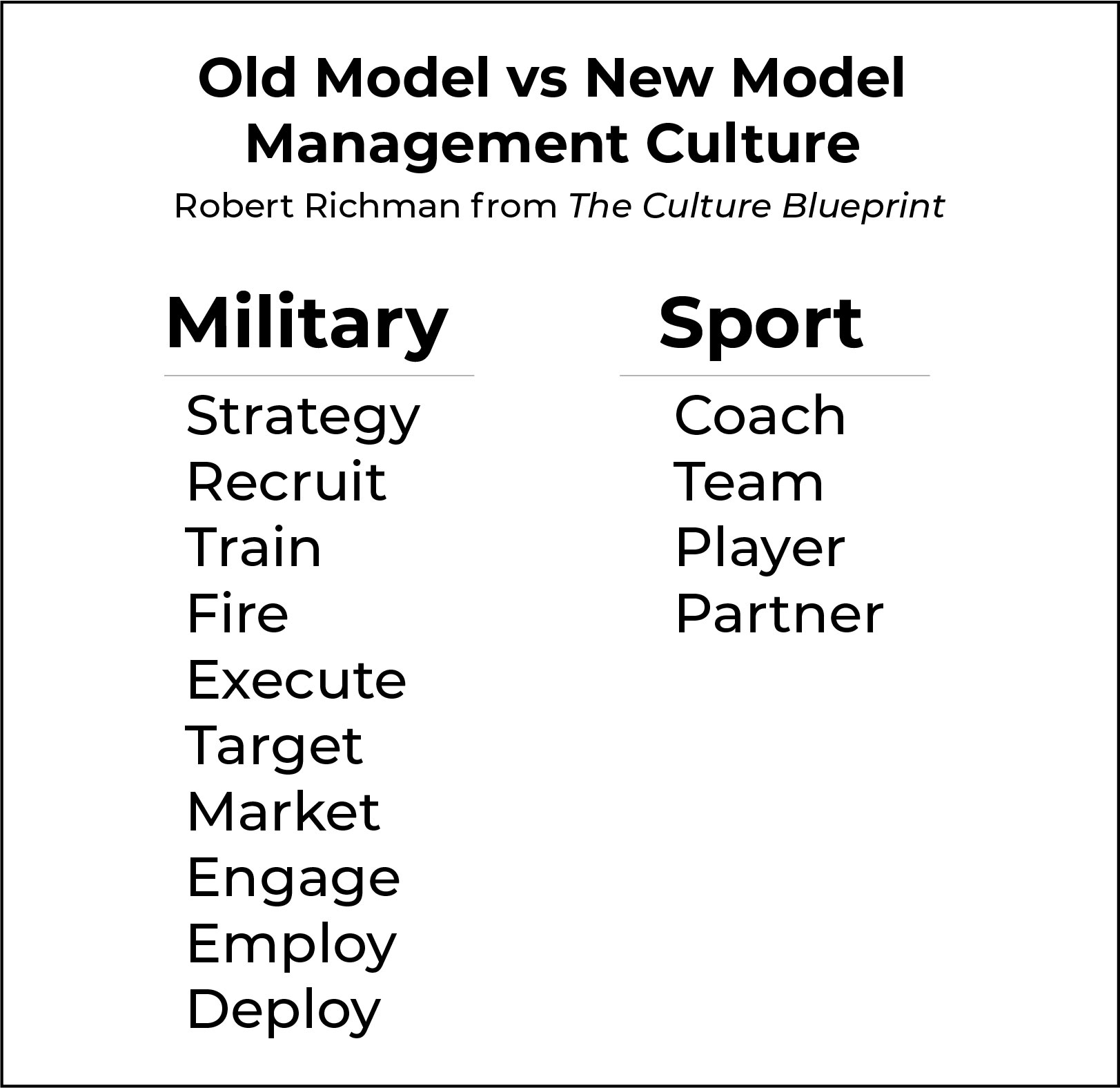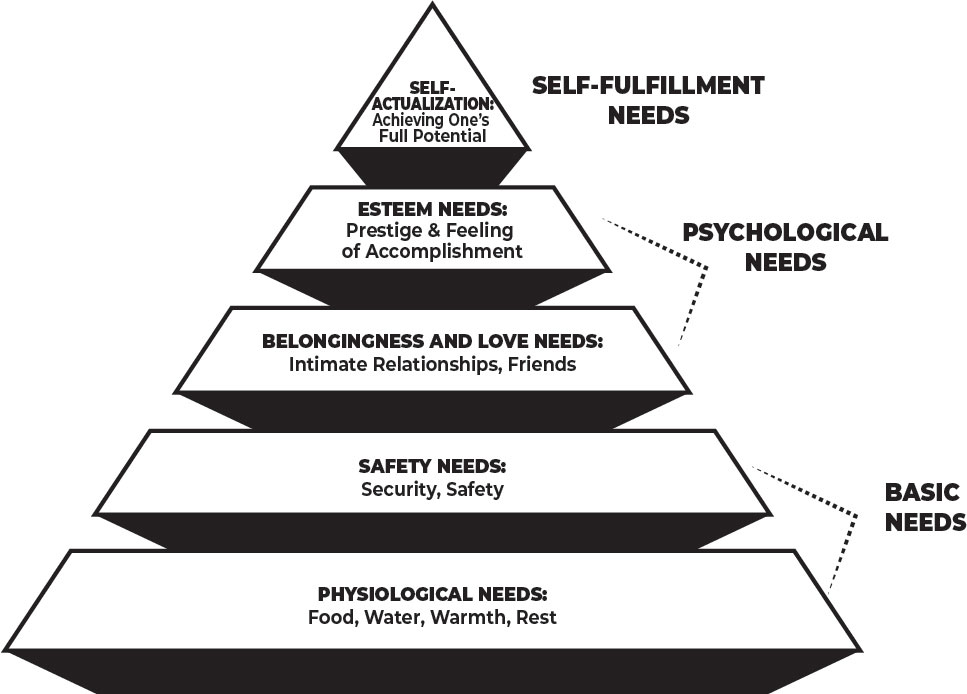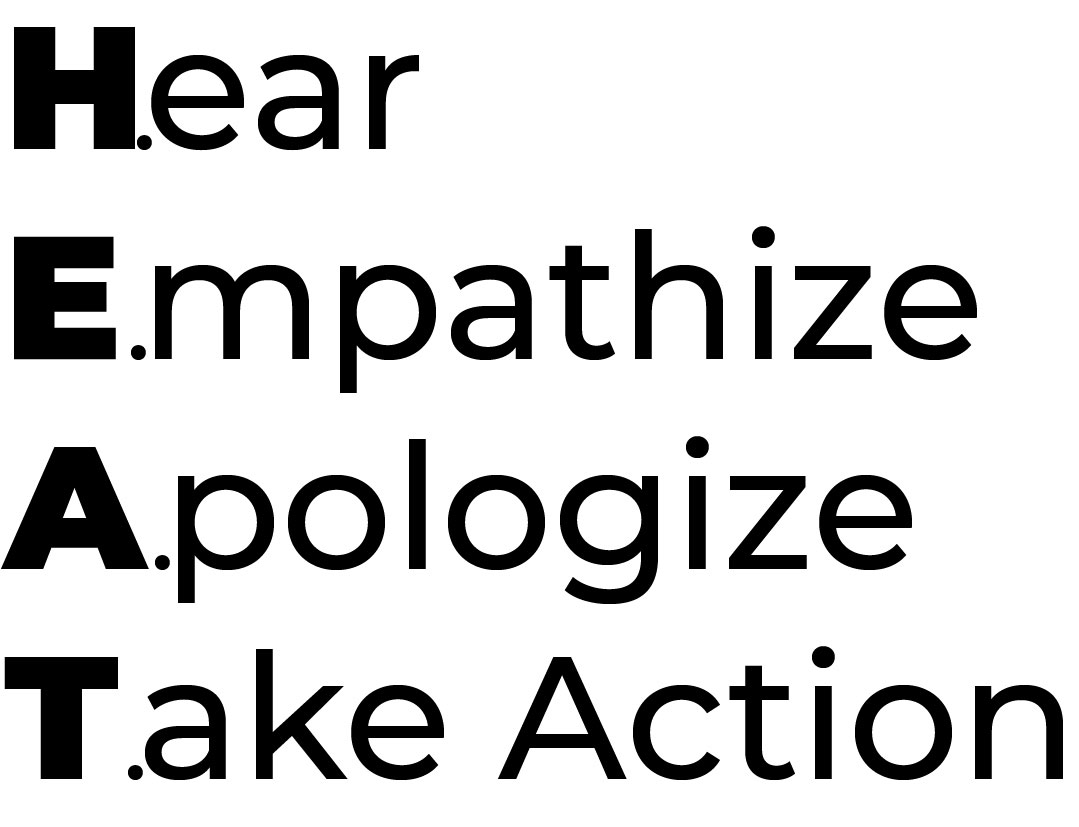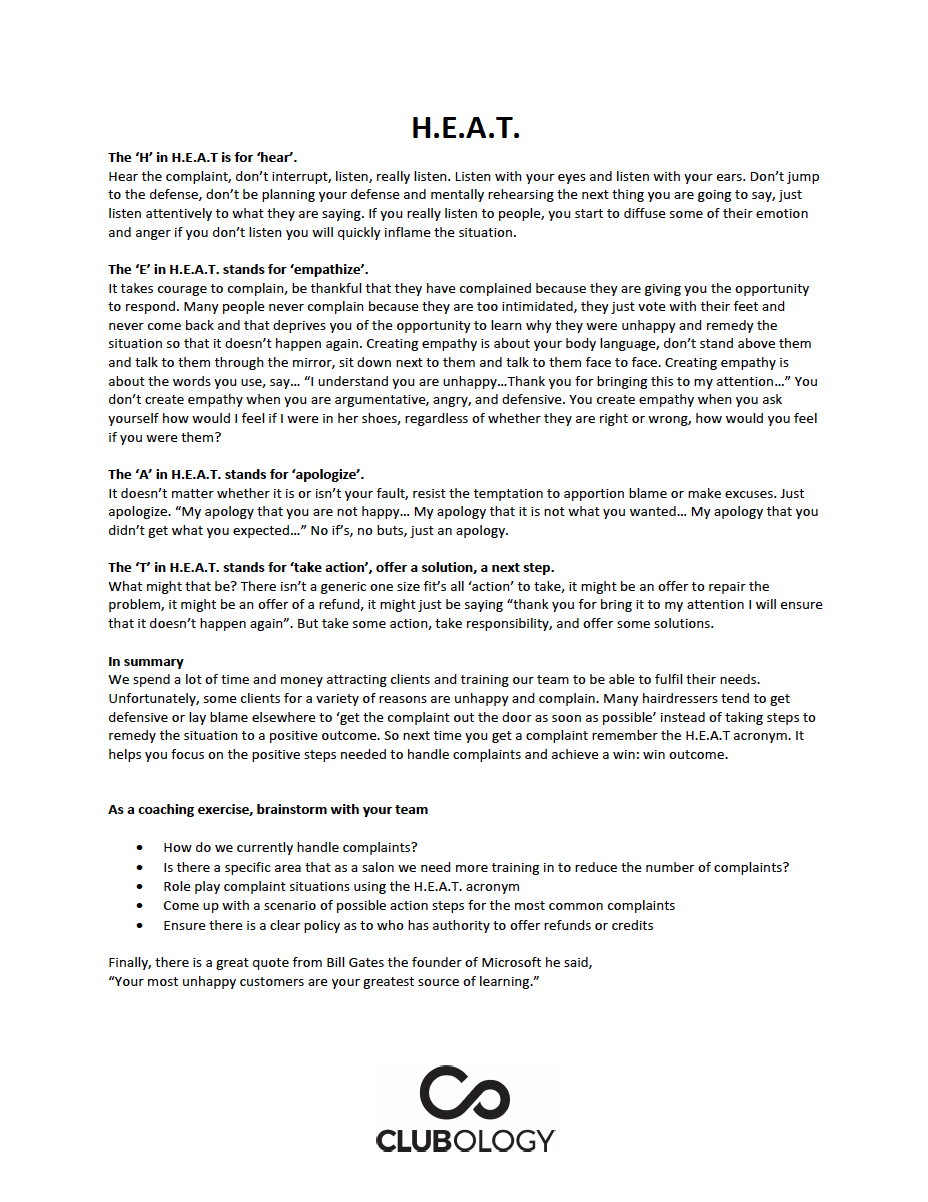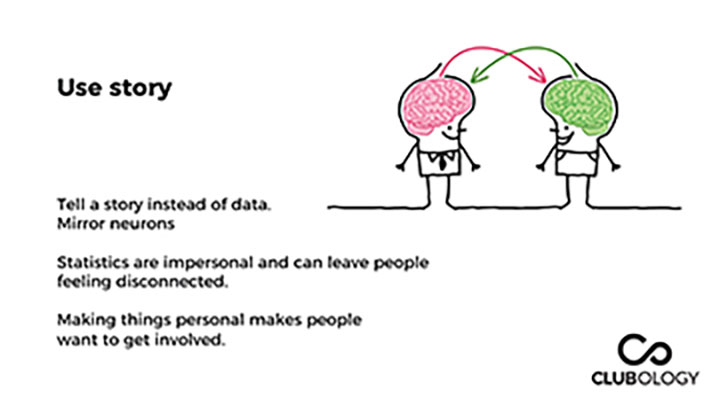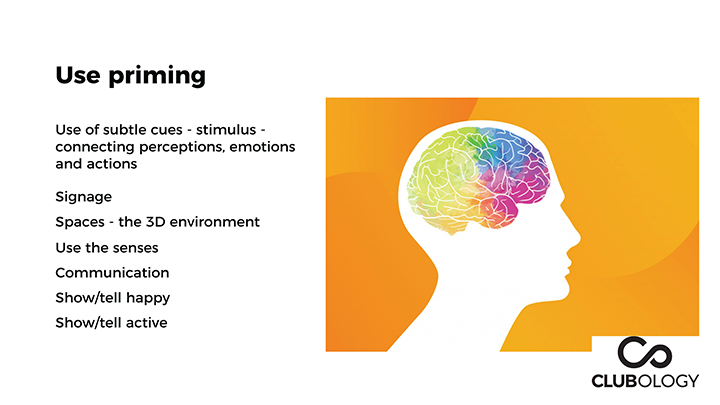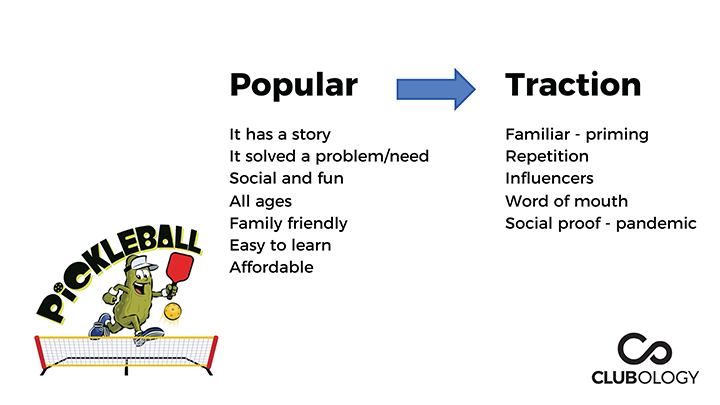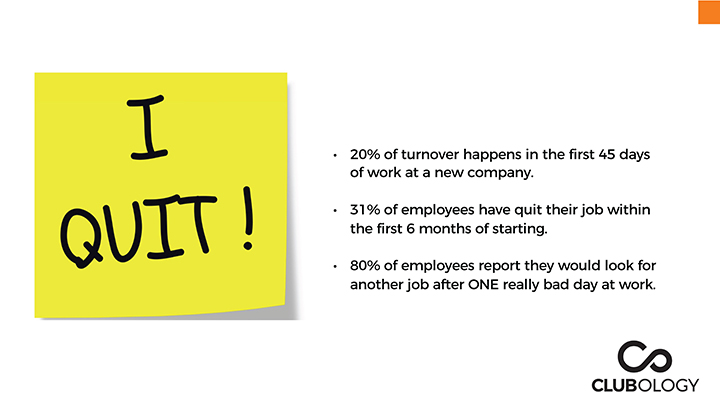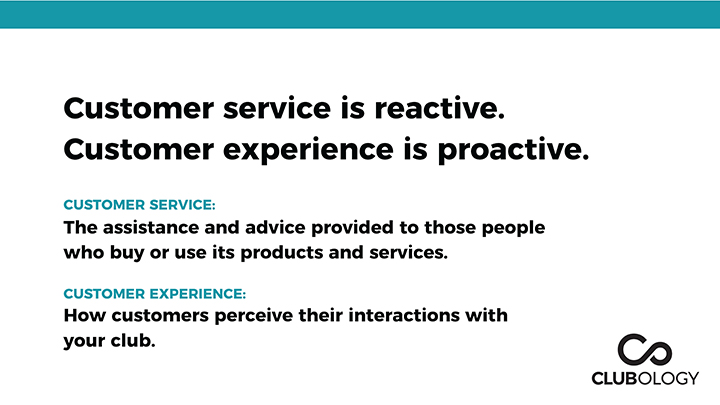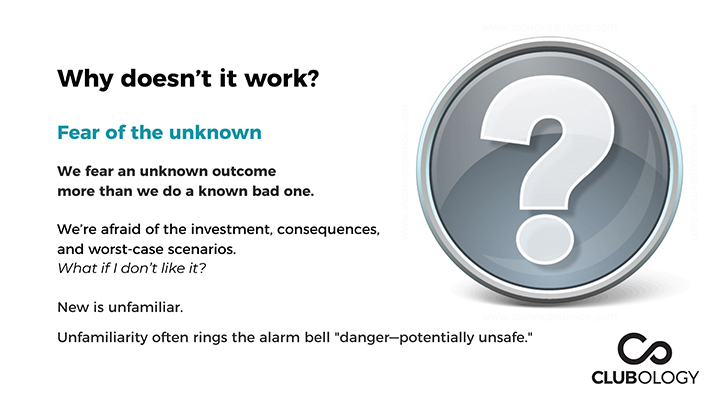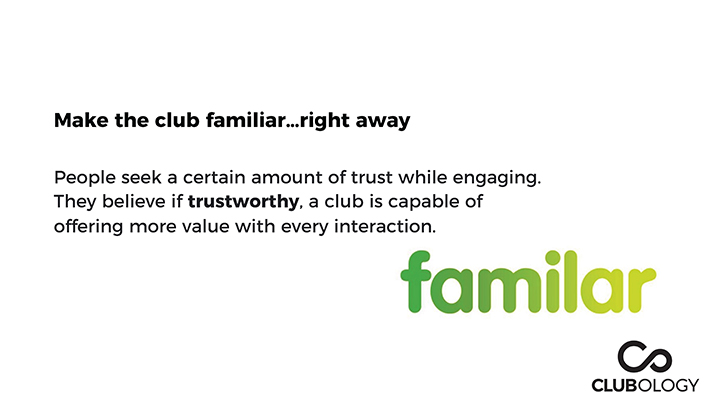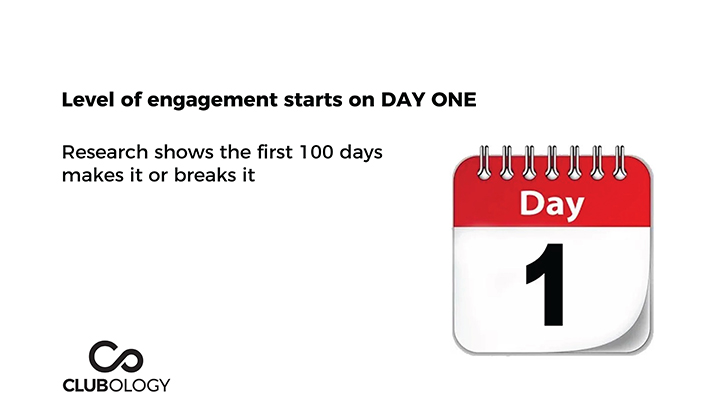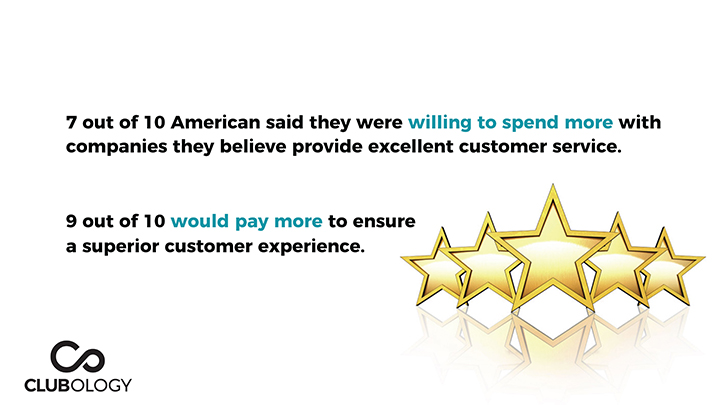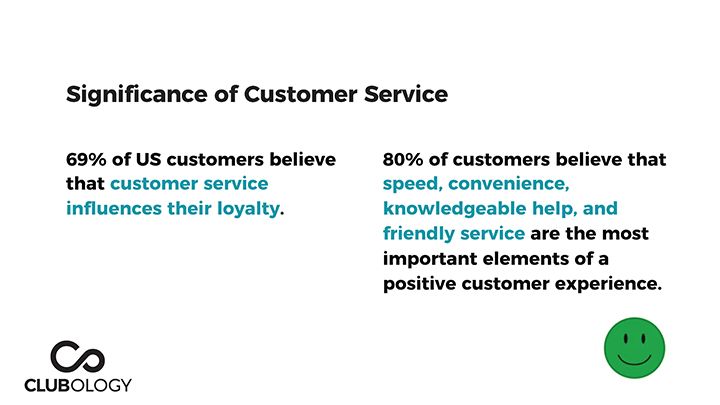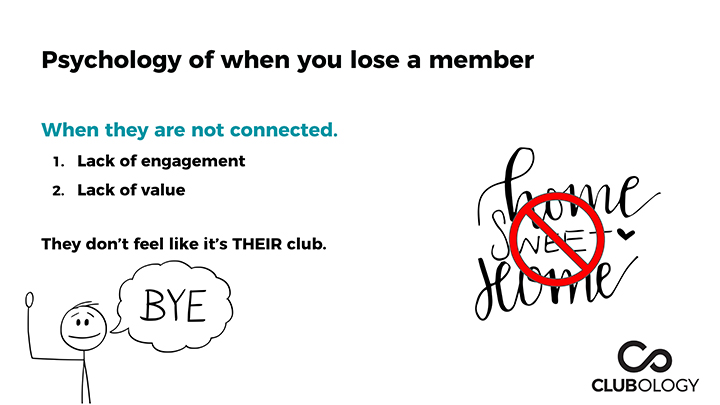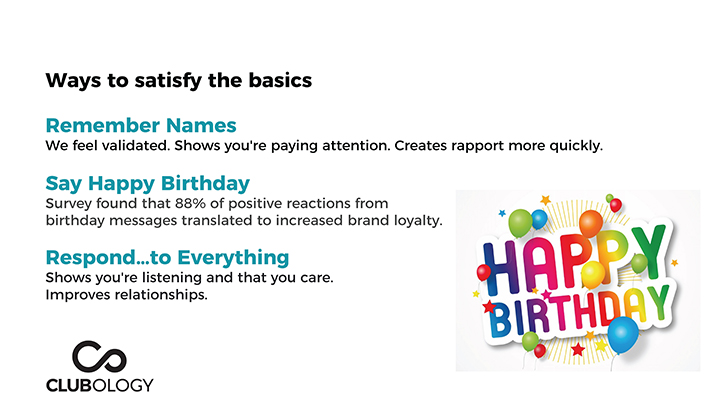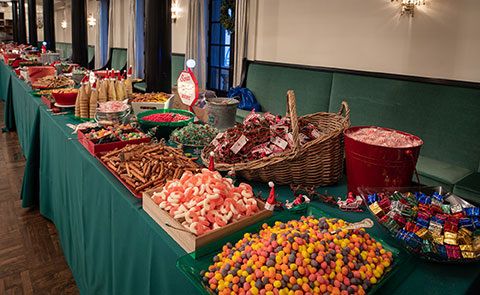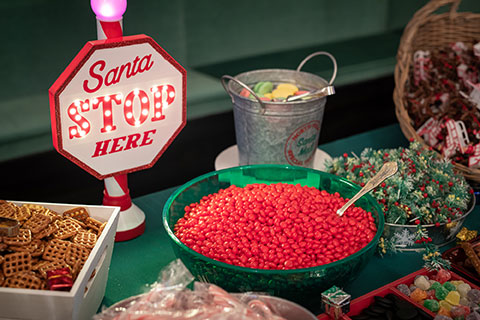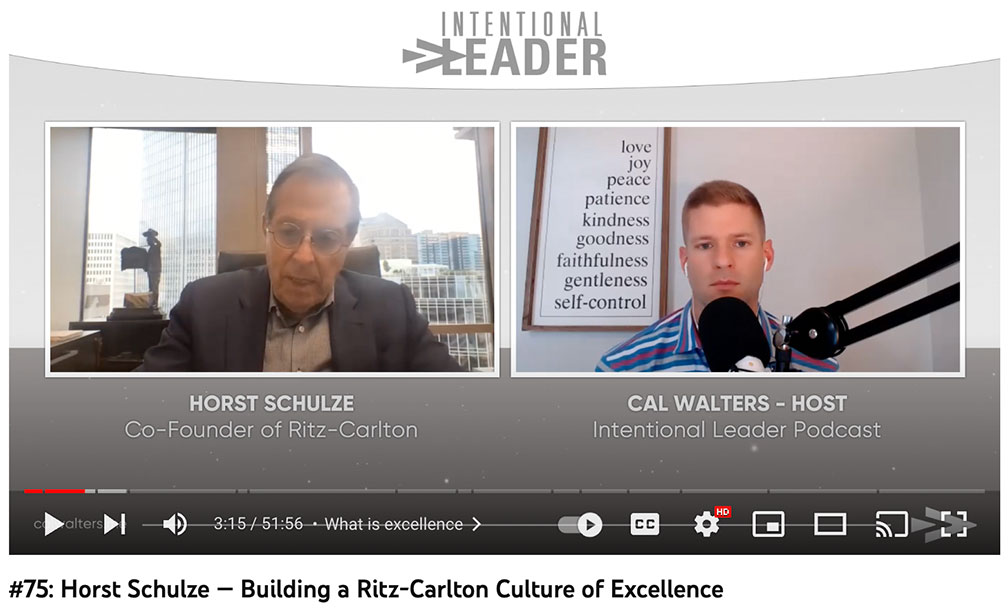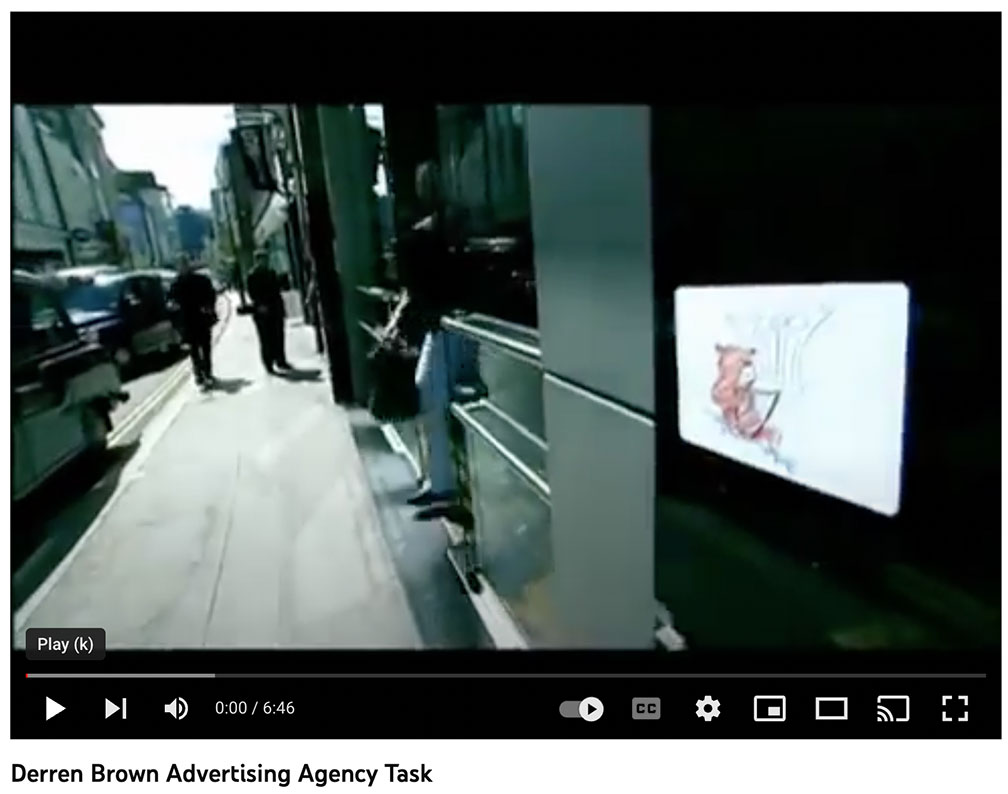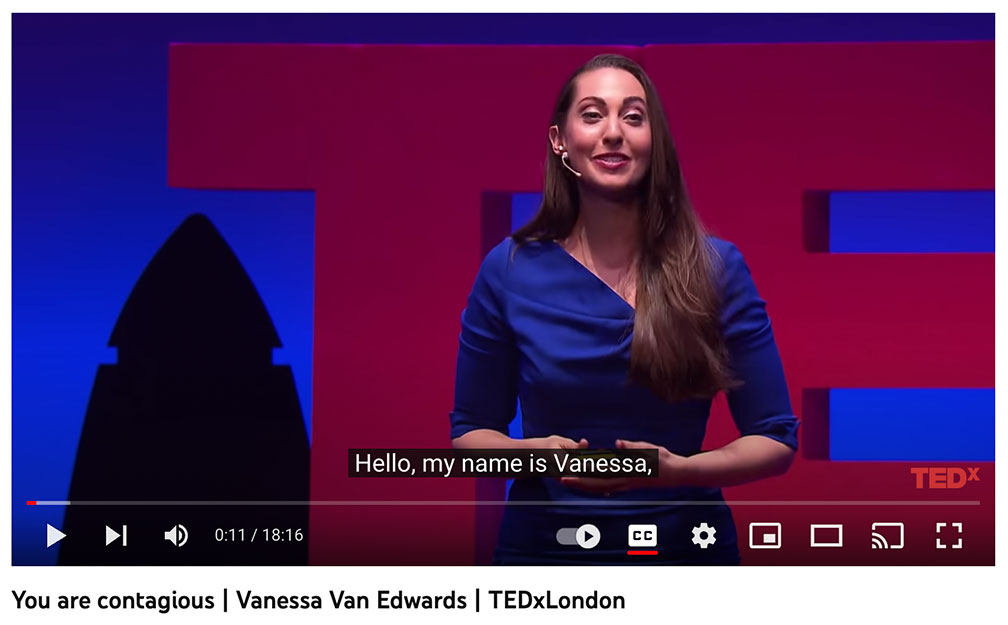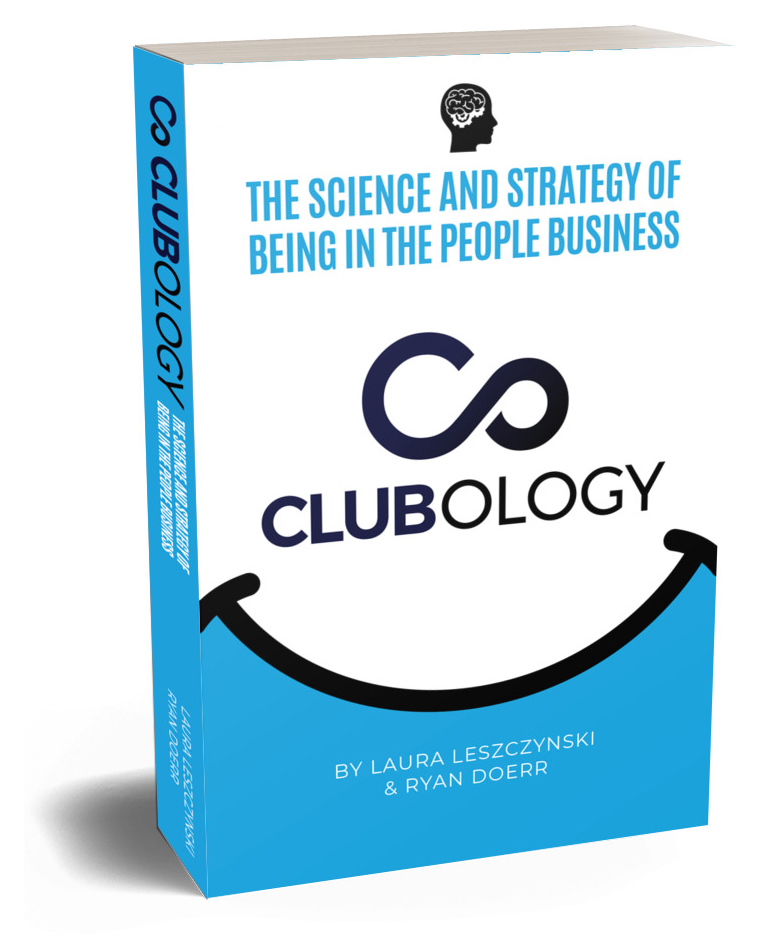
Congratulations
We had a great experience writing the book and want to have easy access to some of the contents and resources in the book. Science shows that simple tips and tricks help persuade consumer behavior. Once you understand some of these and recognize motivational triggers you can hit your goal faster — you get to work smarter, not harder.
We can continue the conversation by doing workshops with your team and presenting for your chapter or organization. Just contact Laura Leszczynski and Ryan Doerr to connect and learn more.
Resources in book order
Research
Theisen, Angela. “Is Having a Sense of Belonging Important?” Mayo Clinic Health System, 8 Dec. 2021, www.mayoclinichealthsystem.org/hometown-health/speaking- of-health/is-having-a-sense-of-belonging-important.
Berridge, K. C., & Kringelbach, M. L. (2008). Affective neuroscience of pleasure: reward in humans and animals. Psychopharmacology, 199(3), 457–480. https://doi. org/10.1007/s00213-008-1099-6.
Jacques, Pete. “The US Customer Experience Index Rankings, 2022.” Forrester, 1 Jun. 2022, www.forrester.com/report/the-us-customer-experience-index-rankings- 2022/RES177585.
“The Science and Psychology Behind Making Memories.” Memories, 2 Aug. 2022, memories.net/blog/the-science-and-psychology-behind-making-memories.
Leary, Mark, and Jongman-Sereno, Katrina. Social Anxiety As an Early Warning System: A Refinement and Extension of the Self-Presentation Theory of Social Anxiety. 3rd ed., Acad‐ emic Press, 2014.
Arora, Nidhi, et al. “The Value of Getting Personalization Right—Or Wrong—
Is Multiplying.” McKinsey & Company, 12 Nov. 2021, www.mckinsey.com/capabili ties/growth-marketing-and-sales/our-insights/the-value-of-getting-personalization- right-or-wrong-is-multiplying.
Hasen, Jeff. “Despite Recognizing the Importance of Personalization, Marketers Are Still Missing the Mark.” Adweek, 5 Oct. 2018, www.adweek.com/brand-market ing/despite-recognizing-the-importance-of-personalization-marketers-are-still-miss ing-the-mark/.
“The State of Personalization 2022.” Twilio Segment, 20 Jun. 2022, segment.com/ pdfs/State-of-Personalization-Report-Twilio-Segment-2022.pdf.
Ismail, Kaya. “What Marketers Need to Know About Neuromarketing.”
CMSWIRE, 25 Sept. 2018, www.cmswire.com/digital-marketing/what-marketers-
need-to-know-about-neuromarketing/.
Spinley, Aarron. “The Neuroscience of Personalization.” CMSWIRE, 2 Nov. 2020, https://bettermarketing.pub/the-neuroscience-of-personalization-477e6ef6577.
Smith, Jake. “The Science Behind Word-of-Mouth Recommendations.” Kellogg Insight, 2 Nov. 2017, insight.kellogg.northwestern.edu/article/why-we-share-opin ions-and-word-of-mouth-marketing.
Gildin, Suzana. Understanding the Power of Word-of-Mouth. vol. 4, RAM. Revista De Admin‐ istraçãO Mackenzie, 2003. https://www.redalyc.org/pdf/1954/195418020007.pdf.
Baer, Drake. “The Primordial Reason People Need to Party.” The Cut, 9 Aug.
2016, www.thecut.com/2016/08/the-primordial-reason-people-need-to-party.html.
“Empathy Stats and Facts for Business.” Brand Genetics, 10 Oct. 2019, https://brand genetics.com/human-thinking/empathy-statistics-for-business/.
“Why Empathy Unlocks Great Customer Service.” Kaizo, 18 Mar. 2022, https:// kaizo.com/blog/empathy-in-customer-service/.
Ferguson, Amanda, et al. When Does Empathy Feel Good? vol. 39, Current Opinion in Behavioral Sciences,, 2021, https://doi.org/10.1016/j.cobeha.2021.03.011.
Cherry, Kendra. “What Is Empathy?” Verywell Mind, 11 Oct. 2022, https://www. verywellmind.com/what-is-empathy-2795562.
Montgomery, Denise. “Is Your Brain Capable of Empathy?” Gordon Training International, 13 Apr. 2017, www.gordontraining.com/leadership/brain-capable- empathy/#:~:text=Oxytocin%20encourages%20bonding%20and%20mutu‐ al,seek%20and%20receive%20good%20things.
Sull, Donald, et al. “Toxic Culture Is Driving the Great Resignation.” MIT Sloan Management Review, 11 Jan. 2022, sloanreview.mit.edu/article/toxic-culture-is- driving-the-great-resignation/.
Robinson, Bryan. “Discover the Top 5 Reasons Workers Want to Quit Their Jobs.” Forbes, 3 May 2022, www.forbes.com/sites/bryanrobinson/2022/05/03/discover- the-top-5-reasons-workers-want-to-quit-their-jobs/?sh=385eb4a55d46.
O’Boyle, Shannon. “Company Culture and Employee Engagement Statistics.” CultureIQ, 4 Jan. 2018, cultureiq.com/blog/company-culture-employee-engage ment-statistics/.
Reiss, Robert. “How Ritz-Carlton Stays At The Top.” Forbes, 30 Oct. 2009, www. forbes.com/2009/10/30/simon-cooper-ritz-leadership-ceonetwork-hotels.html.
Meinzer, Kristen. “Surprise! Why the Unexpected Feels Good, and Why It’s Good For Us.” WNYC Studios, 1 Apr. 2015, www.wnycstudios.org/podcasts/takeaway/ segments/surprise-unexpected-why-it-feels-good-and-why-its-good-us.
“Infographic: The Science of Giving: Why Being Generous Is Good For You.”
Happify, www.happify.com/hd/science-of-giving-infographic/.
Walker, Richard, and Skowronski, John. The Fading Affect Bias: But What the Hell Is It For? Wiley InterScience, 2009, https://doi.org/10.1002/acp.1614.
“Organizations Risk Losing Employees by Failing to Provide Recognition at Work.” Reward Gateway, 18 Jun. 2019, www.rewardgateway.com/press-releases/organiza tions-risk-losing-employees-due-to-lack-of-recognition.
Novak, David. “Recognizing Employees Is the Simplest Way to Improve Morale.” Harvard Business Review, 9 May 2016, hbr.org/2016/05/recognizing-employees-is- the-simplest-way-to-improve-morale.html.
“Implementing Continuous and Social Recognition with Reward Gateway.” Reward Gateway, 24 May 2017, www.rewardgateway.com/press-releases/the-social-recogni tion-disconnect.
Navarra, Katie. “The Real Costs of Recruitment.” SHRM, 11 Apr. 2022, www. shrm.org/resourcesandtools/hr-topics/talent-acquisition/pages/the-real-costs-of- recruitment.aspx.
Novotney, Amy. (2010, December 1). Boosting morale. Monitor on Psychology, 41(11). https://www.apa.org/monitor/2010/12/morale.
Administrator. “Morale.” Psychology, 27 Jan. 2016, https://psychology.iresearchnet. com/industrial-organizational-psychology/job-satisfaction/morale-i-o/.
Schmitz, Taylor, et al. “Opposing Influences of Affective State Valence on Visual Cortical Encoding.” Journal of Neuroscience, 2008, https://doi.org/10.1523/JNEU ROSCI.5387-08.2009.
Bryan, Tanis, and Bryan, James. “Positive Mood and Math Performance.” Journal of Learning Disabilities, vol. 24, no. 8, 2016, https://doi.org/10.1177/
002221949102400808.
“Why Do Some Ideas Prompt Other Ideas Later on Without Our Conscious Awareness?” The Decision Lab, thedecisionlab.com/biases/priming.
Van Edwards, Vanessa. “The Ultimate Guide To Making a Great First Impression (Even Online).” Science of People, www.scienceofpeople.com/first-impressions/.
Wargo, Eric. “How Many Seconds to a First Impression?” Association for
Psychological Science, 1 Jul. 2006, www.psychologicalscience.org/observer/how-many- seconds-to-a-first-impression.
Laja, Peep. “First Impressions Matter: Why Great Visual Design Is Essential.” CXL, 30 Apr. 2019, cxl.com/blog/first-impressions-matter-the-importance-of-great- visual-design/.
Premack, Rachel, and Lebowitz, Shana. “Science Says People Decide These 12 Things Within Seconds of Meeting You.” Insider, 24 Apr. 2019, www.businessin sider.com/science-of-first-impressions-2015-2.
Bell. S., & Bell, C.P., «Future Sense: Defining Brands through Scent», The Journal of Marketing Society 38, Autumn, 2007
Kotler, Phillip & Lindstrom Martin, “Brand Sense: Build Powerful Brands through Touch, Taste, Smell, Sight, and Sound”, New York, NY: Simon and Schuster, 2005
“Casinos Control Much More Than You Think, By Kenneth Freundlich, Ph.D.” Morris Psychological Group, 24 Feb. 2021, https://morrispsych.com/casinos-control- much-more-than-you-think-by-kenneth-freundlich-ph-d/.
Quinn, Annalisa. “Book News: The Smell Of Chocolate Boosts Book Sales, Study Says.” NPR, 1 Aug. 2013, https://www.npr.org/sections/thetwo-way/2013/08/ 01/207805012/book-news-the-smell-of-chocolate-boosts-book-sales-study-says.
North, A.C, et al. “The Influence of In-Store Music on Wine Selections.” Journal of Applied Psychology, 1999, https://doi.org/http://dx.doi.org/10.1037/0021- 9010.84.2.271.
Fabiny, Dr. Anne. “Music Can Boost Memory and Mood.” Harvard Health Publishing, 14 Feb. 2015, www.health.harvard.edu/mind-and-mood/music-can-boost- memory-and-mood.
Norman, Donald A. Emotional Design: Why We Love (or Hate) Everyday Things. Basic Books, 2007.
Hsu, Jeremy. “Just a Touch Can Influence Thoughts and Decisions.” Live Science, 24 Jun. 2010, www.livescience.com/8360-touch-influence-thoughts-decisions.html.
“Is “Rational” Decision Making Possible?” LingQ, www.lingq.com/en/learn- english-online/courses/53435/is-rational-decision-making-possible-107689/.
Clark, Josh. “Can Chocolate Give Me a Happy-High?” Howstuffworks, 2 Jun. 2009, science.howstuffworks.com/life/inside-the-mind/emotions/chocolate- high2.htm.
Melore, Chris. “Chocolate Bar Popularity Is Mostly about the Wrapper, Not the Taste.” Study Finds, 12 Nov. 2020, https://studyfinds.org/chocolate-bar-popularity- about-wrapper/.
Cassella, Carly. “Yep, Cheap Wine Really Does Taste Better If You Increase The Price Tag.” Science Alert, 25 Mar. 2021, www.sciencealert.com/psychologists-find- cheap-wine-tastes-better-when-it-s-sold-as-expensive.
Soliman, Youssef. “Do Taste Perception, Preference, Personality, Mood, and Dietary Intake Behavior Interconnect?” The Center for Nutritional Psychology, 25 Feb. 2022, www.nutritional-psychology.org/how-do-taste-perception-preference-person ality-mood-and-dietary-intake-behavior-interconnect/.
Eurich, Tasha. “What Self-Awareness Really Is (and How to Cultivate It).” Harvard Business Review, 4 Jan. 2018, hbr.org/2018/01/what-self-awareness-really-is-and- how-to-cultivate-it.
Angier, Natalie. “A Molecule of Motivation, Dopamine Excels at Its Task.” The New York Times, 26 Oct. 2009, www.nytimes.com/2009/10/27/science/27angi er.html.
Hallis, Tina. “Don’t Just Do It for Yourself – How Our Positivity Affects Those around Us.” The Positive Edge, 30 Aug. 2015, thepositiveedge.net/2015/08/30/ dont-just-do-it-for-yourself-how-our-positivity-affects-those-around-us/.
“The Power of Positive Thinking.” Johns Hopkins Medicine, www.hopkinsmedicine. org/health/wellness-and-prevention/the-power-of-positive-thinking.
Smith, Emma-Marie. “10 Amazing Positivity Facts to Improve Your Outlook.” Healthy Place, 31 Dec. 2021, www.healthyplace.com/self-help/positivity/10-amaz ing-positivity-facts-to-improve-your-outlook.
Lambert, Nathaniel, et al. “A Boost of Positive Affect: The Perks of Sharing Posi‐ tive Experiences.” Journal of Social and Personal Relationships, vol. 30, no. 1,
2012, https://doi.org/10.1177/0265407512449400.
Palmer, Chris. “The Science of Morality.” American Psychological Association, 1 Jun. 2021, www.apa.org/monitor/2021/06/lab-science-morality.
Greene, J.D. The Cognitive Neuroscience of Moral Judgment and Decision-Making. MIT Press, 2015, https://doi.org/10.7551/mitpress/9988.003.0017.
Hess, Abigail. “LinkedIn: 94% of Employees Say They Would Stay at a Company Longer for This Reason—And It’s Not a Raise.” CNBC, 27 Feb. 2019, www.cnbc. com/2019/02/27/94percent-of-employees-would-stay-at-a-company-for-this-one- reason.html.
“The Sponsor Dividend.” Coqual, 8 Jan. 2019, coqual.org/reports/the-sponsor-divi dend/.
Parmelee, Michele. “Don’t Want to Lose Your Gen Z and Millennial Talent? Here’s What You Can Do.” Deloitte Insights, 18 May 2022 https://www2.deloitte. com/global/en/pages/about-deloitte/articles/millennialsurvey.html#info.
Beheshti, Naz. “Improve Workplace Culture With A Strong Mentoring Program.” Forbes, 23 Jan. 2019, www.forbes.com/sites/nazbeheshti/2019/01/23/improve- workplace-culture-with-a-strong-mentoring-program/?sh=5296542276b5.
Aiello, Kelly. “The Psychology behind a Sweet Tooth.” HappiHuman, HappiHu‐ man, 1 Oct. 2022, https://happihuman.com/blog/the-psychology-behind-a-sweet- tooth.
Boroenina, Katja. “10 Interesting Facts about Sugar.” Agiboo, 24 Oct. 2022, https://www.agiboo.com/10-interesting-facts-about-sugar/.
Murandu, M et al. “Use of granulated sugar therapy in the management of sloughy or necrotic wounds: a pilot study.” Journal of wound care vol. 20,5 (2011): 206, 208, 210 passim. https://www.magonlinelibrary.com/doi/abs/10.12968/ jowc.2011.20.5.206.
Palmer, Chris. “Harnessing the Power of Habits.” Monitor on Psychology, American Psychological Association, 1 Nov. 2020, https://www.apa.org/monitor/2020/11/ career-lab-habits.
“Temptation Coupling.” Coglode Research, www.coglode.com/research/temptation- coupling.
K, Dominika, et al. “Theoretical Explanations for Maintenance of Behaviour Change: A Systematic Review of Behaviour Theories.” Health Psychology Review, 2016, https://doi.org/10.1080/17437199.2016.1151372.
“New Year’s Resolution Statistics (2022 Updated).” Discover Happy Habits, 22 Aug. 2022, discoverhappyhabits.com/new-years-resolution-statistics/.
Mulki, Jay, and Wilkinson, John. “Customer-directed Extra-role Performance and Emotional Understanding: Effects on Customer Conflict, Felt Stress, Job
Performance and Turnover Intentions.” Australasian Marketing Journal, 2017, https://doi.org/10.1016/j.ausmj.2017.04.002.
Cheng, Candice. “3 Factors Strongly Linked to Better Employee Retention, According to 32 Million LinkedIn Profiles.” LinkedIn, 20 Nov. 2019, www.linkedin.com/business/ talent/blog/talent-strategy/factors-linked-to-better-employee-retention.
“Five Methods for Managing Conflict.” University of Southampton, www.southampton. ac.uk/~assets/doc/hr/Five%20methods%20for%20managing%20conflict.pdf.
Dakner, Nadav. “7 Psychological Triggers for Mind-Blowing Conversions, Sales and Growth.” The Daily Egg, 10 Dec. 2015, www.crazyegg.com/blog/mind-blow‐ ing-conversions/#:~:text=1.-,Reciprocity,isn’t%20just%20fanciful%20karma.
Sharf, Ariella. “The Psychology of Reciprocity.” Thnks, https://www.thnks.com/ blog/the-psychology-of-reciprocity.
“Human Behavior Is 93 Percent Predictable, Research Shows.” News@Northeastern, 19 Feb. 2010, news.northeastern.edu/2010/02/19/network_science-2/.
Bushak, Lecia. “Psychology Behind Tradition And Social Taboos: Humans Fear Punishment, Are Willing To Copy Others.” Medical Daily, 14 Apr. 2015, www. medicaldaily.com/psychology-behind-tradition-and-social-taboos-humans-fear- punishment-are-willing-copy-329166.
Lewis, Jordan. “Smells Ring Bells: How Smell Triggers Memories and Emotions.” Psychology Today, 12 Jan. 2015, www.psychologytoday.com/us/blog/brain-babble/ 201501/smells-ring-bells-how-smell-triggers-memories-and-emotions.
“Stability, Psychological (Social Science).” Whatwhenhow, http://what-when-how. com/social-sciences/stability-psychological-social-science/.
Marsh, Emily. “The Psychology of Connected Leadership.” T-Three, 9 Jul. 2019, www.t-three.com/thinking-space/blog/the-psychology-of-connected-leadership.
“Leadership.” Psychology Today, Sussex Publishers, https://www.psychologytoday. com/us/basics/leadership#:~:text=Successful%20leaders%20are%20often%20‐ credited,skills%20for%20everyone%20else%2C%20too.
Leary, Mark Ph.D. “Most Problems Are People Problems.” Psychology Today, 29 Jun. 2017, www.psychologytoday.com/us/blog/toward-less-egoic-world/201706/ most-problems-are-people-problems.
“Spelling and Grammar Mistakes Cost Millions.” Business NH Magazine, 22 Mar.
2019, www.businessnhmagazine.com/article/spelling-and-grammar-mistakes-cost- millions.
Green, Dennis. “It Turns Out That Dressing Well Can Actually Make You More Successful.” Business Insider, 26 Feb. 2016, www.businessinsider.com/dressing-for- success-actually-works-2016-2.
Vallorani, Brandon. “Dressing For Success And The Achievement Of
Your Dreams.” Forbes, 16 Feb. 2018, www.forbes.com/sites/forbesbooksauthors/ 2018/02/16/dressing-for-success-and-the-achievement-of-your-dreams/?sh= 3889e7a9485b.
“Why Fun Learning Works Better Than Dull Learning.” Growth Engineering, 29 Aug. 2020, www.growthengineering.co.uk/why-fun-in-learning-is-important/.
Videos
“Horst Schulze — Building a Ritz-Carlton Culture of Excellence.” YouTube, uploaded by Intentional Leader Podcast, 10 Nov. 2021, www.youtube.com/watch? v=nLT_zXM52YM.
“Derren Brown Advertising Agency Task.” YouTube, uploaded by Paulo Brito, 11 Jan. 2015, www.youtube.com/watch?v=y26rhs8uYq8.
“You Are Contagious | Vanessa Van Edwards | TEDxLondon.” YouTube, uploaded
by TEDx Talks, 27 Jun. 2017, www.youtube.com/watch?v=cef35Fk7YD8.
